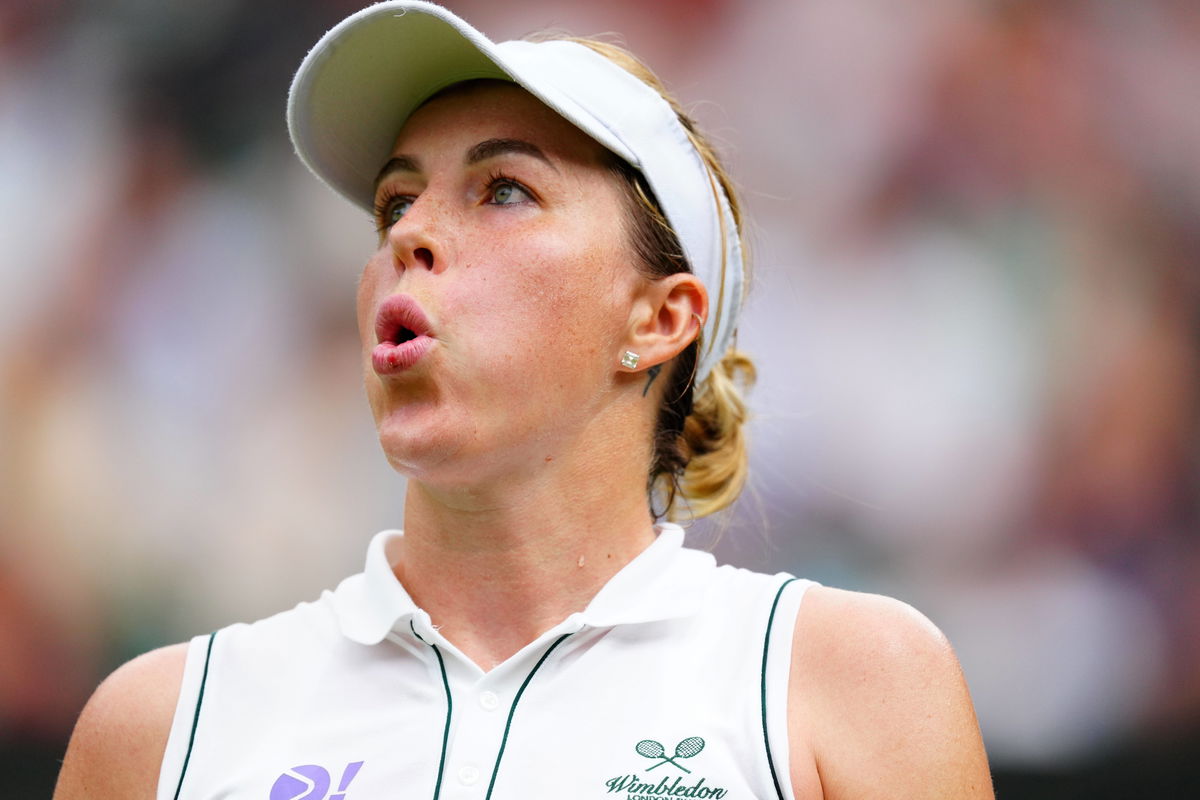
Imago
Anastasia Pavlyuchenkova during her fourth round match Wimbledon Tennis Championships, Day 7, The All England Lawn Tennis and Croquet Club, London, UK – 06 Jul 2025London The All England Lawn Tennis and United Kingdom PUBLICATIONxINxGERxSUIxAUTxHUNxGRExMLTxCYPxROUxBULxUAExKSAxCHNxDENxINDxITAxPORxESPxSWExTURxMEXxCOLxVENxPERxECUxBRAxARGxCHIxURUxPARxPANxONLY Copyright: xJavierxGarcia/Shutterstockx 15387061ba

Imago
Anastasia Pavlyuchenkova during her fourth round match Wimbledon Tennis Championships, Day 7, The All England Lawn Tennis and Croquet Club, London, UK – 06 Jul 2025London The All England Lawn Tennis and United Kingdom PUBLICATIONxINxGERxSUIxAUTxHUNxGRExMLTxCYPxROUxBULxUAExKSAxCHNxDENxINDxITAxPORxESPxSWExTURxMEXxCOLxVENxPERxECUxBRAxARGxCHIxURUxPARxPANxONLY Copyright: xJavierxGarcia/Shutterstockx 15387061ba
The famous line judges, once a staple of tradition at SW19, were nowhere to be seen. In their place stood the cool precision of electronic line-calling. With this, Wimbledon finally fell in step with the US Open, Australian Open, and the broader ATP Tour. But even precision can falter, and when it does, the consequences echo loudly across Centre Court.
Watch What’s Trending Now!
On Sunday, Sonay Kartal stood alone, carrying the hopes of British women’s tennis as she faced off against Anastasia Pavlyuchenkova in the fourth round. The crowd roared for Kartal, turning Centre Court into a battleground not just of skill, but of atmosphere. Yet, amid the rising tension, another opponent revealed itself: technology.
ADVERTISEMENT
At four games apiece, the match was balanced on a knife’s edge. With Pavlyuchenkova serving and holding game point, it looked like the experienced Russian was set to wrestle control of the contest. But then came a moment that changed everything. Umpire Helwert said, “We’re just going to check if the system was up and running, because there was no audio call.”
The Hawkeye malfunctioned, not catching whether the ball was in or out. But the replay showed that the ball was very much in. The glitch rattled not just the scoreboard, but the very rhythm of the match. After a lengthy pause and on-court deliberation, officials made the controversial call to replay the point instead of awarding the game to Pavlyuchenkova. Kartal capitalized immediately, breaking serve and seizing momentum.
ADVERTISEMENT
Frustration bubbled over during the changeover. Pavlyuchenkova, visibly emotional, voiced her anger at what she felt was biased, favoring of the local player. “I don’t know if it’s in or it’s out,” she told umpire Helwerth. “How can I know? You cannot prove it. Because she is local, they can say whatever. You took the game away from me.” She continued, “They stole the game from me. They stole it.”
ADVERTISEMENT
A spokesperson for the All England Club made a statement. “Due to operator error the system was deactivated on the point in question. The chair umpire followed the established process.” While the All England Club feels confident in the system, things haven’t looked positive.
Simply PATHETIC situation on Centre Court.
Pavlyuchenkova just lost a game that… she won.
At 4-4.
4th round of a Slam.
Centre Court.
"You just stole me the game".
She is right.
— José Morgado (@josemorgado) July 6, 2025
This wasn’t the first instance of the new electronic line-calling system drawing fire at Wimbledon. Just days ago, Emma Raducanu was caught on the wrong side of a dubious call in her third-round clash with Aryna Sabalenka. With Sabalenka trailing 2-4 and serving at 15-0, a serve initially called in by the system appeared out on replay. Raducanu, stunned, looked to the chair umpire for clarity. “You saw it out as well, right?” she asked. But the umpire, stripped of the authority to overrule the machine, could only shrug.
ADVERTISEMENT
Jack Draper found himself in a similar bind in his second-round showdown against Marin Cilic. In a tense fourth set, Cilic fired an ace on the advantage side—another questionable call Draper couldn’t challenge. The Brit approached the chair, visibly agitated, but again, there was nothing to be done. Hawk-Eye had spoken, and the traditional line judges were no longer there to intervene. Draper reflected on the system’s flaws after losing the match and said: “I guess it can’t be 100 per cent accurate. It’s millimetres. It’s for both ways. I think it’s a shame, tradition that the umpires aren’t involved. It’s obviously something that makes it easier for the players because we don’t have to worry about line calls.”
Despite the controversy, Pavlyuchenkova regrouped and made a stunning comeback to win the match.
ADVERTISEMENT
Anastasia Pavlyuchenkova fends off home hope Sonay Kartal
Sonay Kartal, buoyed by the break after the glitch, served for the set and even held a set point. But that’s where the veteran’s resolve kicked in. Launching a counterattack of blistering forehands, Pavlyuchenkova broke back and powered through the tiebreak.
ADVERTISEMENT
There was no looking back from there. The World No. 50 kept the pressure high in the second set, delighting the crowd with a flurry of creative winners—a left-handed forehand, a pinpoint lob, and a crisp volley exchange that sealed an early break. She closed out the match 7-6(3), 6-4, silencing the partisan crowd and ending British hopes in the women’s draw.
For Pavlyuchenkova, this win marks another chapter in her comeback story. Diagnosed with Lyme disease earlier this year, she spent months battling fatigue and form. But since returning to the tour, she’s been in inspired form, reaching her first career grass-court semifinal just last week in Eastbourne. Now 8-1 on grass this season, the 34-year-old is into her 10th Grand Slam quarterfinal.
She may have been denied a crucial game by a flawed system, but she made sure the match belonged to her. Follow the Championships in real-time with EssentiallySports’ Live Blog updates.
ADVERTISEMENT
ADVERTISEMENT
ADVERTISEMENT
ADVERTISEMENT
